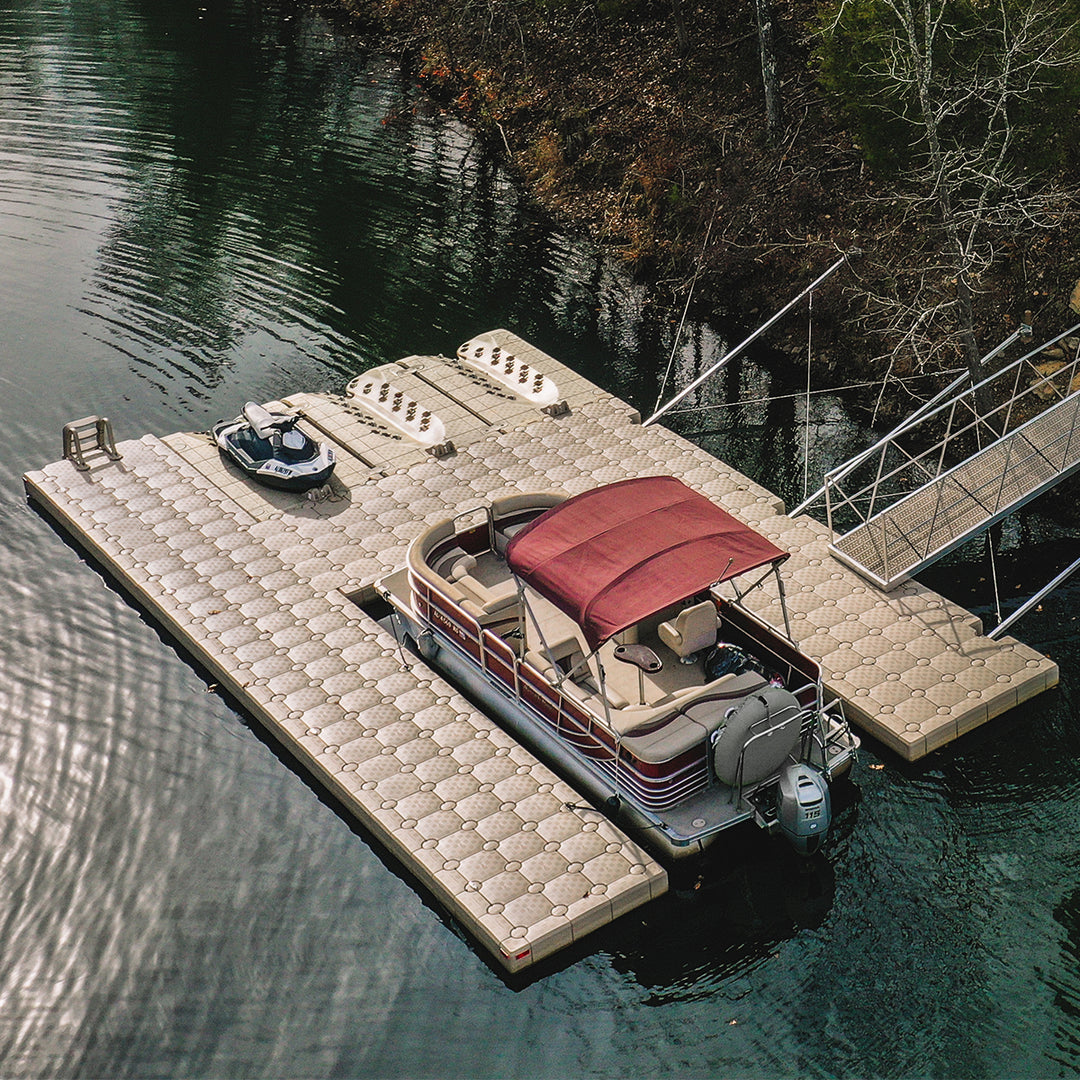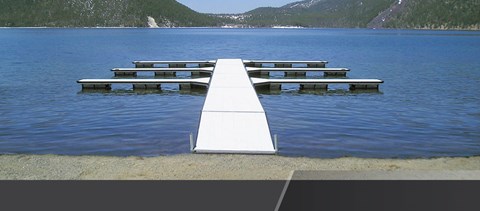Navigating the Options: Selecting the Right Dock Company for Your Floating Dock Job
Navigating the Options: Selecting the Right Dock Company for Your Floating Dock Job
Blog Article
Floating Docks: The Suitable Option for Versatile Water Access
Floating docks present an engaging remedy for a range of water gain access to needs, offering convenience that goes beyond conventional mooring options. The modular nature of floating docks facilitates modification, catering to particular needs.
Advantages of Floating Docks
Floating docks deal many advantages that boost water accessibility for different applications. Their ability to fall and climb with altering water levels makes them specifically beneficial in environments with rising and fall tides or seasonal variants. This versatility guarantees that vessels can conveniently anchor without issue for the water's deepness, supplying a reputable platform for leisure, commercial, and commercial usages.
Furthermore, floating docks are typically built from resilient products that withstand deterioration, making them suitable for long-lasting usage in aquatic environments. Their setup is typically less invasive than typical set docks, decreasing the ecological impact and assisting in quicker release (floating dock company). This adaptability permits for easier relocation or reconfiguration according to individual requirements or ecological adjustments
Security is one more crucial benefit; floating docks can provide stable access for individuals disembarking or boarding from watercrafts and lower the threat of crashes connected with unpredictable surface areas. Moreover, they can be developed to suit a range of accessories, such as cleats and fenders, enhancing functionality. Generally, floating docks stand for an efficient service for improving water accessibility throughout diverse sectors while advertising security and environmental sustainability.

Kinds of Floating Docks
Different sorts of floating docks accommodate different requirements and settings, each developed with details features to enhance functionality. The most typical kinds include modular docks, which are composed of interlocking sections that enable easy personalization and development. These docks are optimal for entertainment use, as they can be tailored to fit different watercraft sizes and water conditions.
One more preferred alternative is the stationary floating dock, which remains secured in place but drifts with transforming water degrees. floating dock company. This kind is particularly matched for areas with marginal tidal variations, providing stable access for angling or swimming. Furthermore, there are drive-on docks, which feature a sloped design that allows boats to quickly drive on and off, making them appropriate for individual boat and smaller sized vessels
For commercial applications, heavy-duty floating docks are available, constructed from reinforced materials to stand up to substantial loads and harsh marine environments. Lastly, environment-friendly floating docks utilize lasting products and layouts to decrease ecological influence, commonly incorporating features like vegetation to sustain neighborhood wild animals. Understanding the numerous sorts of floating docks makes sure that individuals can select one of the most proper service for their specific needs.
Installation Refine Summary
A successful installment of floating docks needs careful preparation and interest to detail to make certain ideal efficiency and security. The initial action involves assessing the website conditions, consisting of water depth, existing, and prospective barriers. This analysis notifies the selection of the proper dock materials and layout tailored to the certain environment.
Following, acquiring necessary licenses is crucial, as several jurisdictions have laws concerning building and construction on water bodies. Once authorizations are secured, the setup can continue. Begin by preparing the foundation, which might entail anchoring systems or pilings tailored to the dock type and neighborhood conditions.
Complying with the structure configuration, put together the dock sections according to manufacturer specs. Make certain that all components are firmly attached and aligned to stand up to ecological stresses. Setting the dock in the assigned location, guaranteeing it is degree and secure.

Upkeep Tips and Finest Practices
After the setup procedure is complete, continuous upkeep plays a vital role in ensuring the longevity and capability of floating docks. Regular inspections should be performed to recognize any type of signs of damage, damages, or wear - floating dock services. Look for any loosened fittings, splits, or separation in the dock sections, as these can endanger structural honesty
Cleaning up the dock is essential to get rid of debris, algae, and various other build-up that can influence its appearance and safety. Use a gentle pressure wash regularly to maintain tidiness without causing damages to the surface. Furthermore, applying a protective sealer every few years can aid enhance durability and resist environmental wear.
Take note of the mooring lines and anchors, guaranteeing they are protected and cost-free from corrosion. Change any kind of degraded elements promptly to prevent threats. Seasonal adjustments might additionally be required; throughout extreme weather, repositioning or enhancing the dock can stop damages.
Applications for Floating Docks
Floating docks offer a plethora of applications, catering to both leisure and industrial needs. In leisure setups, they give seamless access to waterways for activities such as boating, fishing, and swimming. Their flexible nature permits installment in differing water levels, guaranteeing steady and secure website here accessibility despite tidal fluctuations.
Commercially, floating docks are essential for marinas and waterside services. They assist in the docking of vessels, making it possible for reliable unloading and loading of goods. Their modular design permits easy expansion or reconfiguration to accommodate changing service demands, making them optimal for watercraft leasings, excursion operations, or fishing charters.
Additionally, floating docks are made use of in ecological applications such as water research study and habitat remediation. They can act as why not try these out platforms for scientific research studies, keeping an eye on water top quality, or conducting wild animals surveys without disturbing delicate ecosystems.
In commercial contexts, floating docks are used in building and construction jobs, supplying access to hard-to-reach areas for tools and workers. Their flexibility, sturdiness, and minimal influence on the setting make them an ideal choice for a vast variety of applications, enhancing both capability and availability in various water-based settings.
Final Thought
In conclusion, floating docks represent an optimum remedy for diverse water gain access to needs, owing to their flexibility, durability, and modular design. Floating docks serve as a useful property for recreational, commercial, and environmental jobs, making sure trusted accessibility to rivers and advertising sustainable practices in aquatic environments.
Floating docks present a compelling solution for a variety of water access needs, providing flexibility that transcends conventional mooring choices.Floating docks offer various advantages that enhance water access for various applications. In general, floating docks stand for a reliable remedy for boosting go water gain access to throughout diverse markets while advertising safety and security and ecological sustainability.
One more preferred choice is the stationary floating dock, which continues to be secured in place but floats with transforming water degrees.In verdict, floating docks represent an optimal remedy for varied water gain access to needs, owing to their adaptability, resilience, and modular design.
Report this page